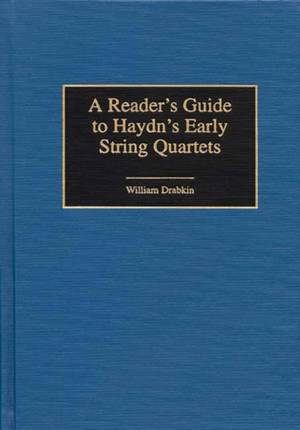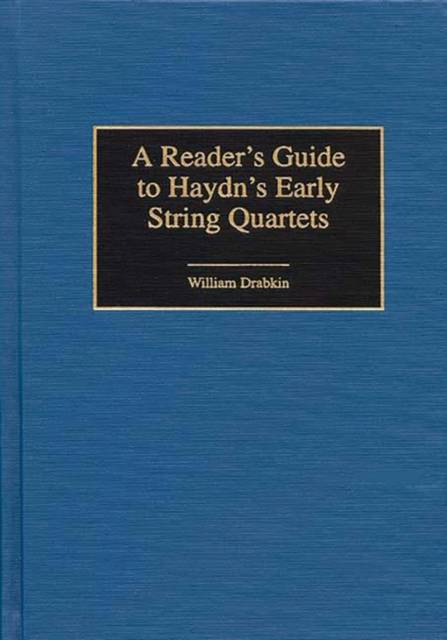
En raison d'une grêve chez bpost, votre commande pourrait être retardée. Vous avez besoin d’un livre rapidement ? Nos magasins vous accueillent à bras ouverts !
- Retrait gratuit dans votre magasin Club
- 7.000.000 titres dans notre catalogue
- Payer en toute sécurité
- Toujours un magasin près de chez vous
En raison de la grêve chez bpost, votre commande pourrait être retardée. Vous avez besoin d’un livre rapidement ? Nos magasins vous accueillent à bras ouverts !
- Retrait gratuit dans votre magasin Club
- 7.000.0000 titres dans notre catalogue
- Payer en toute sécurité
- Toujours un magasin près de chez vous
Description
The six string quartets comprising Joseph Haydn's Opus 20 (composed in 1772) are the first works in the genre to have received consistent critical attention from writers on music. The twenty-two quartets Haydn wrote before this date, though rarely discussed by historians and theorists and seldom performed in public, are nevertheless fundamental to the development of the quartet and thus inseparable from Opus 20 itself. This thoughtful discussion provides a basis upon which to study the quartet by showing how the relationship among the four players can best be understood as a musical dialogue. A methodology is developed for analyzing these quartets by focusing on the characteristics of string instruments that inform not only the style of the music, but also the materials of the composition. The changing relationships among the instruments reveal the level of sophistication evident in Haydn's early works and attest to the affinity these works have with his later masterpieces. Music scholars and educators will appreciate the generous musical examples and clear prose that explains the more detailed analysis of the Opus 20 set.
Spécifications
Parties prenantes
- Auteur(s) :
- Editeur:
Contenu
- Nombre de pages :
- 200
- Langue:
- Anglais
- Collection :
- Tome:
- n° 1
Caractéristiques
- EAN:
- 9780313301735
- Date de parution :
- 30-10-99
- Format:
- Livre relié
- Format numérique:
- Genaaid
- Dimensions :
- 164 mm x 243 mm
- Poids :
- 485 g

Les avis
Nous publions uniquement les avis qui respectent les conditions requises. Consultez nos conditions pour les avis.






